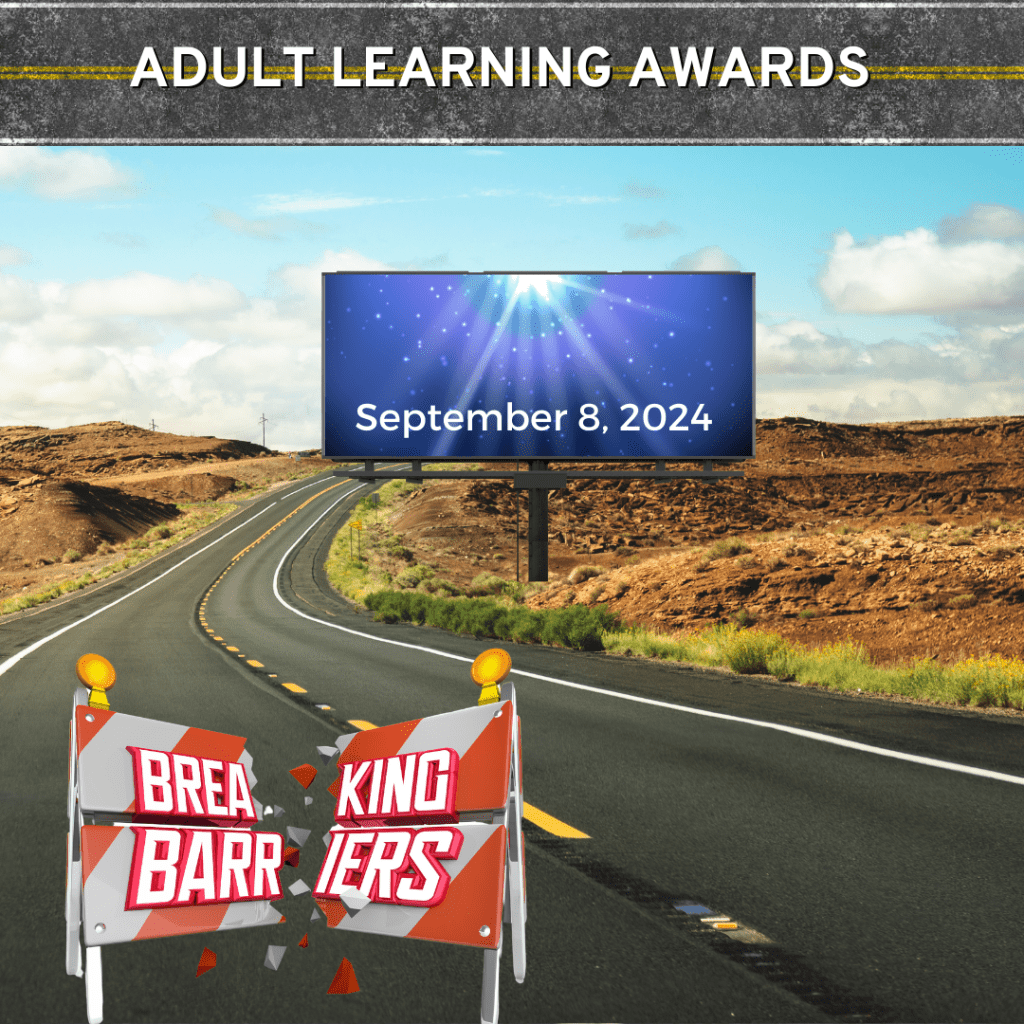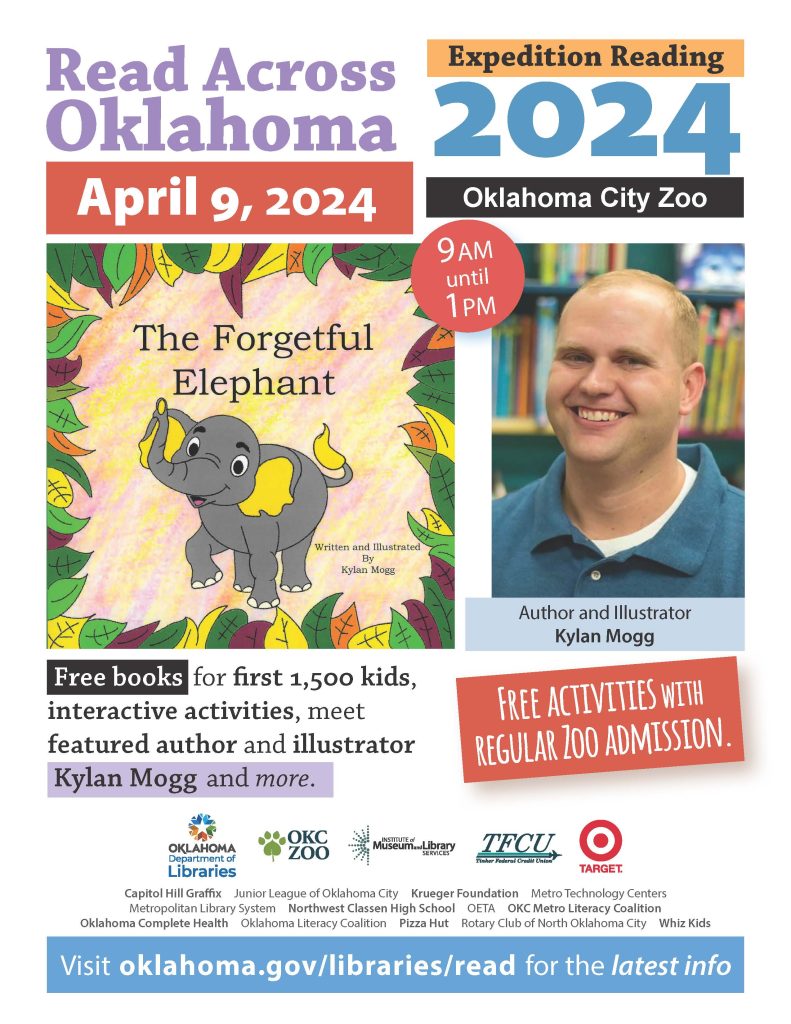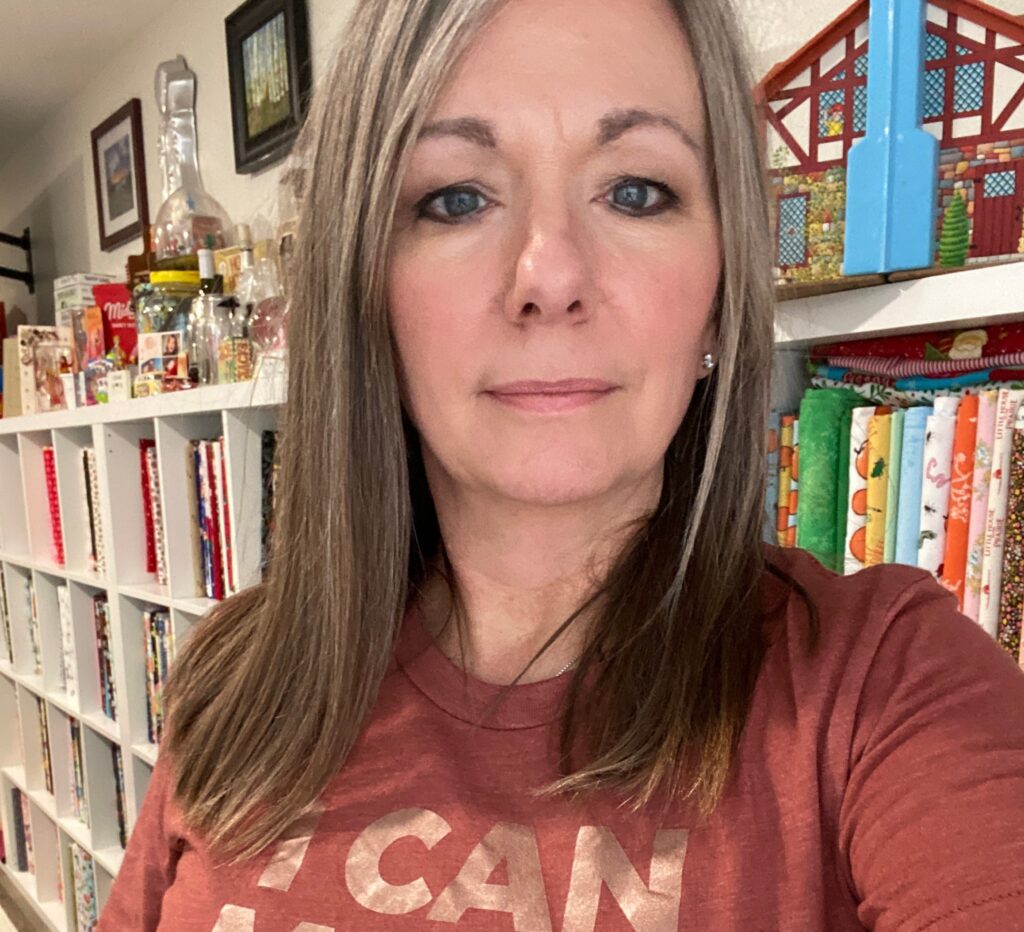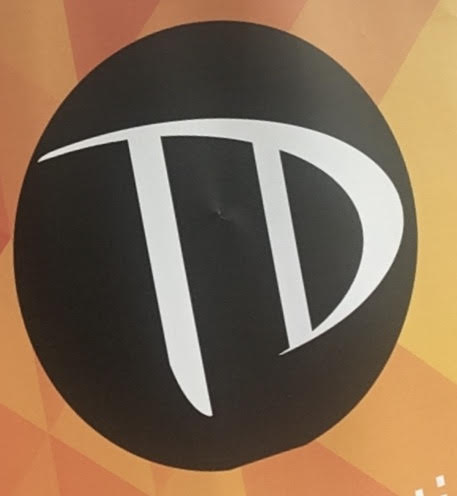Posts Tagged ‘literacy’
Adult Learning Awards
2024 Lawton Symposium: Charting New Territories
May 3 @ 10:00 am – 2:00 pm
$15 for Non-Members, FREE for OLC Individual Members
Tahlequah Public Library
Interview with Cathy Monholland, Literacy Coordinator at the Tahlequah Public Library
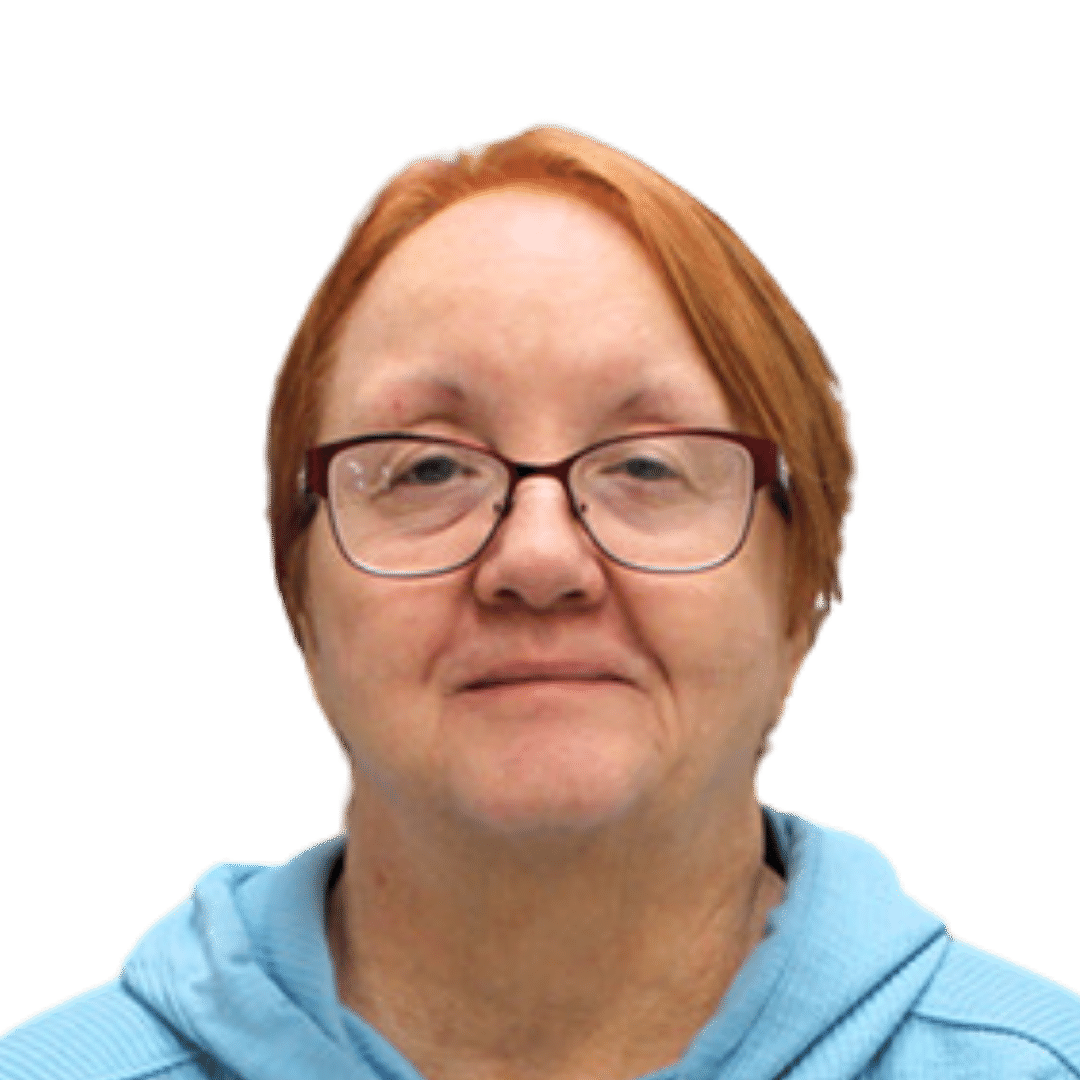
As a beginning to learning more about the wonderful programs around the state and the people who keep them going, I will be asking literacy organizations to answer six questions. Cathy Monholland was willing to go first! Her answers are below. I feel like we should hang out so I can hear more fabulous stories!
1. Can you share a personal story or experience that has had a significant impact on your commitment to adult literacy?
About a year ago, a new student came to me for tutoring to learn to speak and read English. She is 40 and is Chinese. She is a local businesswoman who owns Tahlequah's largest Chinese restaurant. During our initial meeting, I asked her why she was coming to me and what she hoped to accomplish with our sessions. She began to cry and told me that she came to me because her oldest son (a college student) had just told her he was embarrassed by her inability to speak English with her customers and that she'd been in the U.S. long enough that she should have learned English by now. Not only did his comment hurt her feelings, but it also hurt her pride. She has made so much progress now that she and all her children speak English at home, and she and her eldest now talk about everything in English. She said he is now very proud of her and the progress she has made and is making. This student's drive to learn English and her reasons for it impacted me in a huge way to help her show her son she can accomplish her goals. She is a very smart, wonderful lady, and it hit me anew how important what we do in teaching others how to learn to speak and read and write in English. (For over a year, she's been bringing Chinese food to the library for our staff. Whatever they have left over on Sunday nights, she brings here for us to eat on Mondays.)
2. How do you personally stay motivated and engaged in your work, especially during challenging times?
As someone who has spent most of her life in academia as a teacher, I love to learn and to teach, I know I have made very positive impacts on many students over the years, because they have told me so. When I get discouraged (as I did a few times during COVID), I think of all the wonderful, smart students I've had, and they keep me going. I taught in the Houston Community College System (HCCS) for many years, and former students still track me down on Facebook to reconnect and tell me how I've impacted their lives. Just knowing I've helped them keeps me fired up and ready to go!
3. Can you describe the specific programs and services your organization offers to support adult learners and promote literacy skills (i.e., ESL, Literacy, Citizenship, HSE, Digital, Health, and how they are delivered, i.e., one-on-one, small groups, classes)?
I tailor what our program offers in terms of what students need or want. Most of my work is one-on-one literacy tutoring, and I've also got a group ESL class going right now. I have had several HiSET students over the years (one is beginning her classes on Monday, March 25), and I've helped several students get or renew their green cards. I have not had a student who wants to study for American citizenship yet, but I can offer that as well (I was married to an international student and helped him get his green card). I also offer classes on basic computer usage in conjunction with our Tech Center and its director.
I have helped numerous people research their Native American ancestry (usually Cherokee but not always) using the online Dawes Rolls and other sources (I taught the Cherokee Nation History Course for 5 years and know how to use the Rolls); I've helped numerous Hispanic students with business documents that they don't understand and helped many segue from my classes to other classes at other institutions. I also have worked with students from Northeastern State University's language classes that teach American students to teach ESL; these students have proven to be good tutors to our students here at the library. Our current NSU student tutor wants to teach either in South America or Vietnam when he graduates. (He and I team-teach our ESL class on Mon. nights and then he teaches solo on Wed. nights.) I also have a new tutor--retired Navy officer who is anxious to begin teaching in our program, so we are staffed to manage even more requests for tutoring going forward.
I have reached out to Excel High School (online school) to see if our program could partner with them to offer GED classes that students can take online in our Tech Center, and I am open to other types of literacy teaching as requested or needed.
4. Could you share a specific success story of an adult learner who has gone through your program and achieved significant personal or professional growth, highlighting how your program assisted in their journey?
I can think of several success stories, including the Chinese woman I discussed under the first question. My first success story here is a student who is still coming for classes. She began her studies just a couple of months after I started this job, and her oldest son at the time was 7 (he's now a jr. in high school). She knew so little English at first that for maybe 3 months her son was in the tutor room with her, and if I asked her a question, Joseph would type the question into her cell phone, it would be translated into Spanish, she'd answer in Spanish into the phone, which would then answer me in English! I studied Spanish in high school and college and lived in Houston for 30 years (where if you don't learn some Spanish, you be in big trouble!). After about 8 weeks, we ditched the cell phone and let Joseph look for his own books, while his mom's English continued to improve. Now speaking to her is like talking to a home-grown native. Her most frequent line in class is "how you say?" and I tell her to try saying it, and she almost always gets it right. I knew I had succeeded when she told me she was so proud of herself. When I asked why, she said that now when she goes with her family to shop at Wal-Mart, she can tell her husband (he has come to quite a few classes with her but can't be a regular due to his construction job) everything that everyone is saying while they wait in line at the checkout lane.. She is also a self-employed house cleaner, and she often tells me how much easier her dealings with her clients are now that she can speak to them in English (her bonuses are bigger as well). Maria has 13 brothers and sisters, most of whom are here in Tahlequah and she helps each and every one of them when issues come up and they need her to read or explain something to her. 2 of the sisters come with her to class sporadically, so I think I have had a good impact on them also. They know I am here to help them if they ever need it. And---all 3 of Maria's boys each have a library card, and they use them!!!
5. What is your most effective method to recruit new students?
I think the most effective method to recruit new students is by word of mouth. There are enclaves of Hispanic and Chinese people in Tahlequah, and if you don't know anyone in a specific group, it's hard to get through to the group. However, if you know one person in a group and he or she likes you and can see how you can help him or her, that person often will refer others to you. My Chinese student knows all the Chinese folks in town (they have a huge Bible study group), especially one older lady who kind of helps all the Chinese folks here. This older lady called me to see if I would tutor another Chinese lady who had just lost her job and can't speak English well enough to get another one. I told her I'd be happy to help the lady. So, the 2 ladies come in and, lo and behold, the unemployed lady is someone who came here about 3 years ago, came for 6 weeks, and disappeared. When I told them I'd be happy to work with Gua Hui if she was serious about classes this time, the older lady said, "She will come to class." To date, she has not missed one session with me.
I also post flyers in both English and Spanish in all the Hispanic businesses in town, but we don't get much return on those.
6. How do you keep your current students engaged so that they keep attending classes?
I like to think I'm a funny person, and I like to use humor in the classroom. I also like to use the Internet to show people things that we read about in class. I have 3 students currently reading the Little House books (while doing weekly homework from the Challenger series of books and the Grammarwise books). In the last month I've used the Net to show them a) what paper dolls are; b) what 19th-century sunbonnets look like; c) what a sleigh is; and d) what calico fabric looks like. I have also used YouTube a) to have them hear what fiddle music sounds like; b) what a panther scream sounds like; c) what the lyrics to "Home Sweet Home" sound like; and d) what square dancing looks and sounds like. Now my Chinese student is gung-ho to learn to do the Texas two-step! I've told her I can't help her there, even though I'm half Texan....
I have also shown film clips to illustrate bigger issues, and in my ESL classroom we have a giant screen TV that I've used to play Mariachi music for our Spanish Language Night parties, and for every major holiday I bring in any candy associated with that holiday. (I'm going to have to stop that as now the students bring ME candy on holidays!) One year, none of my students had ever had a real American Thanksgiving meal, so the library bought all the food and fixins' and my mother and I cooked it all and I served it at my Spanish Language Night in November. It almost killed me as I had to cook and then carry all the food in and out of the library, but it was all worth it to see how much the students enjoyed all of it, but especially the sweet potato/marshmallow casserole. (The things I do for my students...!!!!)
Thank you, Cathy! You are amazing!
Read Across Oklahoma 2024
Creek County Literacy Program
About the Organization
Creek County Literacy Program (CCLP) began in 1989 with the mission to provide Adult Literacy services in Creek County. We began in a small room in the basement of the library. Around 2007, our building was erected through funding by Friends of the Library and the Bartlett Foundation. The City owns and maintains our 5,000 square foot building and our stipulation is we are to only provide literacy related outreaches here.
CCLP now provides Adult Literacy, Youth Literacy and Health Literacy Outreaches. We do offer Computer/Technology Literacy help on a one-on-one basis, but we no longer provide workshops. Under the Youth Literacy umbrella is our Caring Grands Reading Program. Tutors work with the same child weekly, first and second grade struggling readers, to help increase their sight word recognition. The child is gifted a book each week to build a personal home library.
We have had three executive directors. One was here a few years. The current Executive Director Melissa Struttmann replaced Barbara Belk, who retired after 19 years of service. Melissa was hired in January 2013.
CCLP is governed by a board of directors comprised of about 15 local volunteers. They meet monthly, breaking in June and July.
CCLP has one major fundraiser, the Spelling Bee, which has been converted to a “non-event” fundraiser for two years to skirt large gatherings. They will resume holding it in person in 2024. Please click this link to see more information about this year’s Spelling Bee and consider donating–while not attending.
CCLP has been a Tulsa Area United Way Agency since 1991.
Registration numbers have decreased since Covid and have been slow to resume. Our 2022 numbers:
- 15 adult students
- 55 youth students
- 66 Caring Grand Volunteers
- 163 Caring Grand students and
- 633 health literacy attendees
Last month, CCLP hosted the Symposium: Focusing on Adult Learners in partnership with Oklahoma Literacy Coalition.
About the Executive Director
Melissa Struttmann came to CCLP after a position with the American Diabetes Association where she managed the Step Out fundraising event and was responsible for a $190k fundraising goal. Before that, she was the Director of Member Services with the Jenks Chamber of Commerce. Before that, she had a home-based community magazine called the Jenks Express. It was direct mailed to 8,000 homes and businesses each month. It was 40 pages, Melissa wrote the articles, sold the ad space and did the layout. And affixed the 8,000 labels each month (with a little child labor help). She had been a Stay-At-Home-Mom to six kids, one profoundly disabled, about 18 years. Melissa had always been a part of fundraising events in her church and volunteered by doing weekly bulletins and newsletters.
Melissa is the Treasurer for Oklahoma Literacy Coalition. We are very glad to have her and her experience.
Where Do We Go from Here: Race and Literacy in Oklahoma
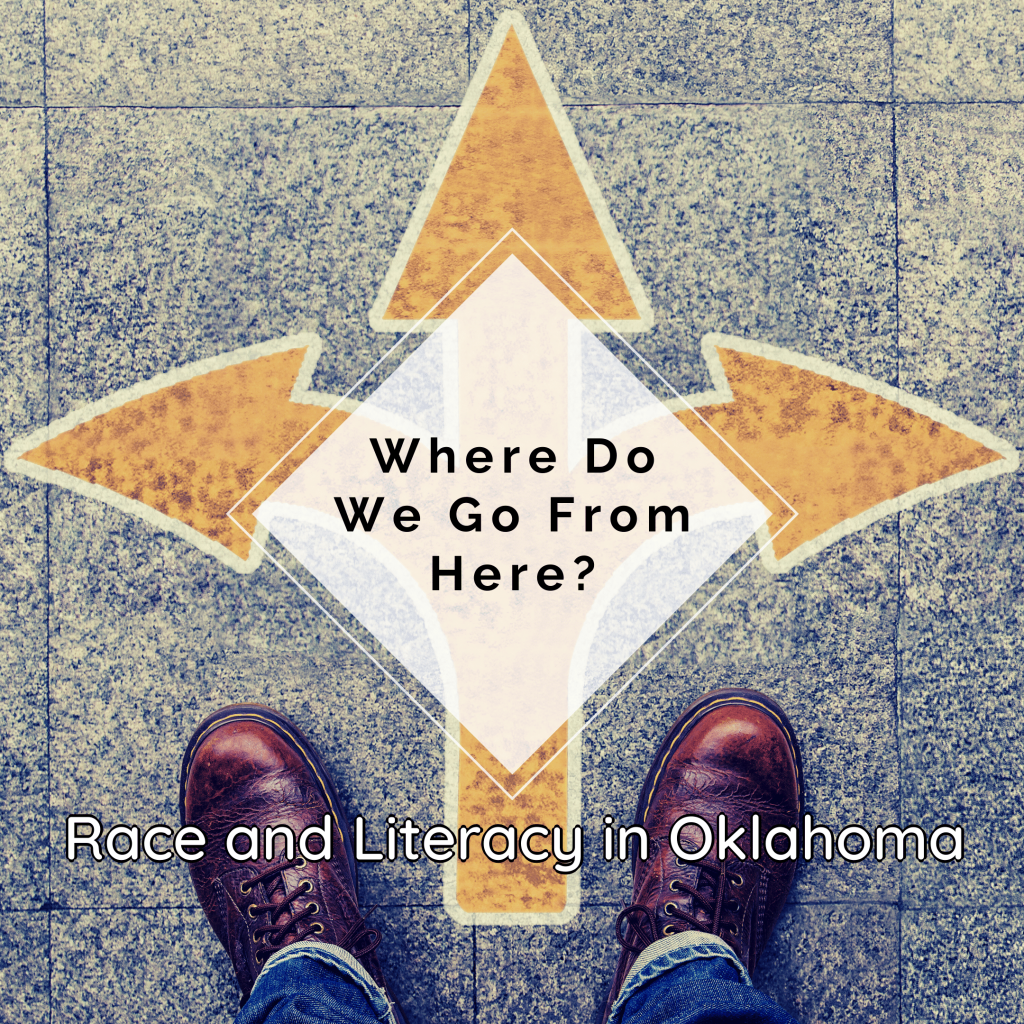
2020 will go down in history as a year in which the world was turned upside down. We have been quarantined, told we don’t need a mask, told that we do need a mask, and told to avoid crowds. Businesses have closed, some temporarily and some permanently. People have been laid off or told to work from home. And all the while, racism has been bubbling to the surface.
Join us Wednesday, July 22, at 10:30 am-11:30 am to start breaking down the issues that are surfacing. We will meet in a safe environment to allow for brave questions to be asked. “What makes someone racist?” “What exactly is white privilege?” “Am I guilty?” “I’m just one person, what can I do to help?” “Is that racist or politically correct?” “How does race affect literacy?” “How does cultural intelligence impact how teachers engage with different racial groups?” “Do racial groups do better being taught by the same ethnicities and races?”
Our conversation will be led by Suzette Chang. She will help us to untangle our thoughts and provide tools and recourse as we discuss, “Where do we go from here?”

